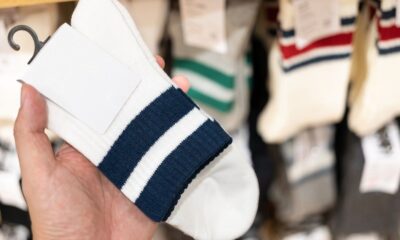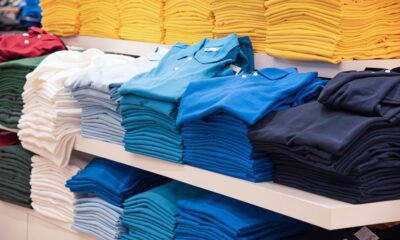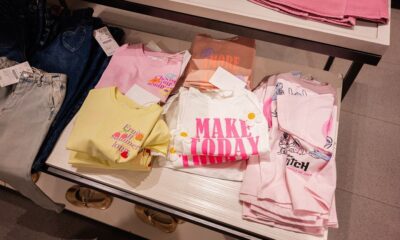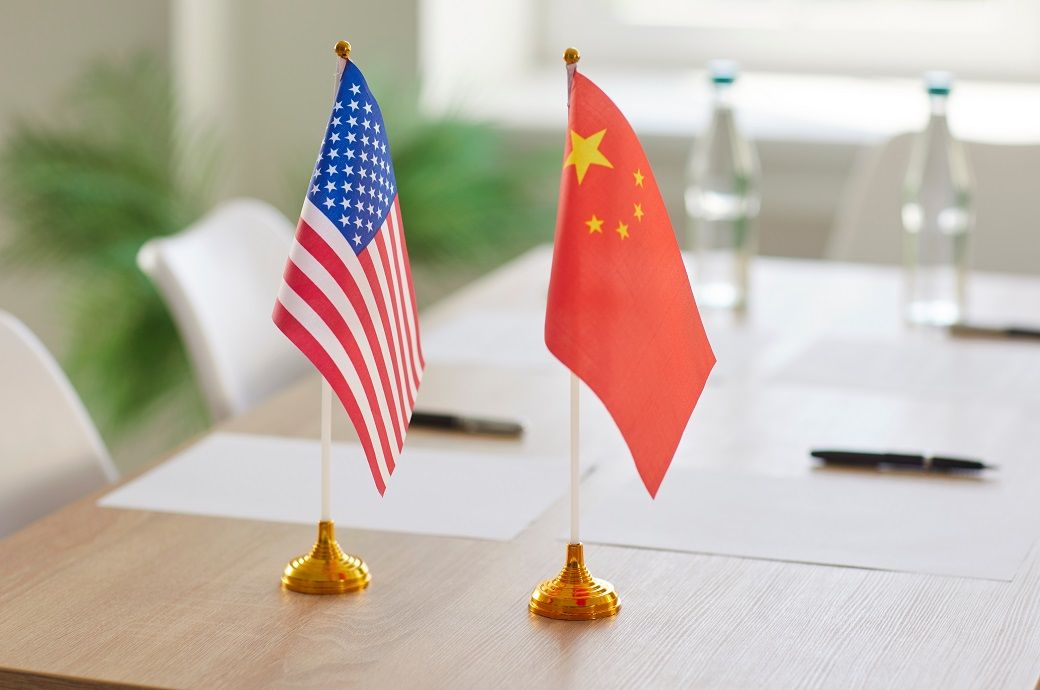Fashion
Well-heeled shoppers shrug off price hikes for Birkenstocks and Bugaboo strollers for now
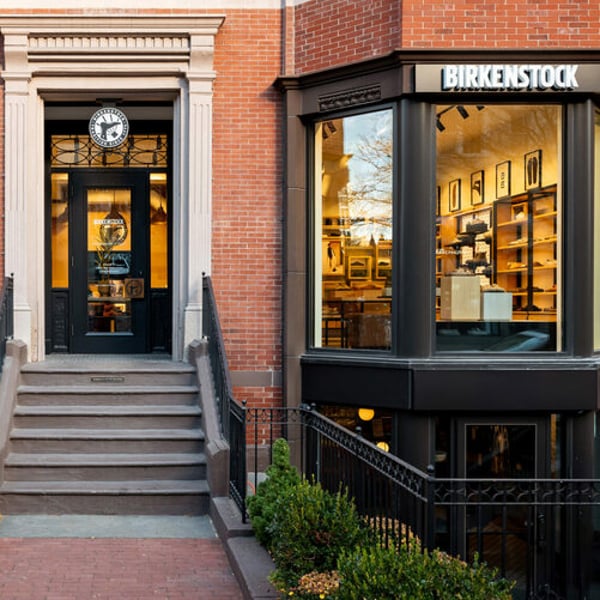
By
Reuters
Published
August 15, 2025
Well-heeled shoppers around the US seem – so far at least – willing to soak up price hikes for aspirational products from trendy Birkenstock sandals to Bugaboo prams, despite the impact of trade tariffs and belt-tightening elsewhere.
German sandal and clog brand Birkenstock has enjoyed strong consumer demand with little pushback from US retailers since hiking prices at the start of July, its chief executive said on Thursday. As brands raise prices and cut costs to mitigate the impact of higher US tariffs on their imported products, a key question is the extent to which consumers will be put off and buy less, or simply walk away from purchases.
Comments from Birkenstock, Bugaboo, Coach, Ralph Lauren and other brands at the premium end of the market suggest that, so far, affluent consumers are shrugging off price hikes.
“We saw no pushback or cancellations following the July 1st price increases implemented in response to tariffs,” Birkenstock CEO Oliver Reichert told analysts on a call, adding demand for the brand has been “tremendously strong.”
Bank of America, the largest consumer facing US bank, said this week that middle- and upper-income earners spent more on their credit cards in July than the same month last year. In contrast, spending among the lowest income bracket remained flat, the bank found.
Overall US consumer spending may stay strong, Bank of America said, as long as higher-income individuals keep spending. Lower-income earners account for only 15% of all US consumer spending, according to Bank of America. However, Procter & Gamble, maker of Tide detergent, reported signs of spending cutbacks among higher-income consumers, indicating that shoppers may be becoming more selective with their purchases.
Bugaboo, a Netherlands-based maker of expensive baby gear, also raised prices on its strollers, high chairs and play pens by $50-$300 in May because of US tariffs. Retailers were open and accepting.
“In general we did not see any pushback. They are like us. They understand it is a fluid situation,” Chief Commercial Officer for North America, Jeanelle Teves, said. Bugaboo manufactures in China and sells strollers for more than $1,000 at Target, Nordstrom, Bloomingdales and independent mom and pop stores.
Coach handbags also remain in strong demand despite a gloomier economic outlook: the brand drew in more than 4.6 million new customers in North America this year, many of whom are Gen Z and millennials, Tapestry CEO Joanne Kuvoiserat said on Thursday. Coach, whose popular Tabby shoulder bags retail for $350, will maintain its operating profit margin despite the pressure of tariffs, Kuvoiserat said.
Ralph Lauren, meanwhile, raised its annual revenue forecast as shoppers snapped up items like its $398 Polo Bear sweaters. But consumers’ behaviour in the coming months remains hard to predict, CEO Patrice Louvet highlighted on a conference call with analysts. “The bigger unknown here today is the price sensitivity and how the consumer reacts to the broader pricing environment. So that’s what we’re watching very closely as we head into the second half.”
© Thomson Reuters 2025 All rights reserved.
Fashion
USITC launches study on ending China PNTR
Fashion
Germany’s Puma’s FY25 sales slide on wholesale reduction
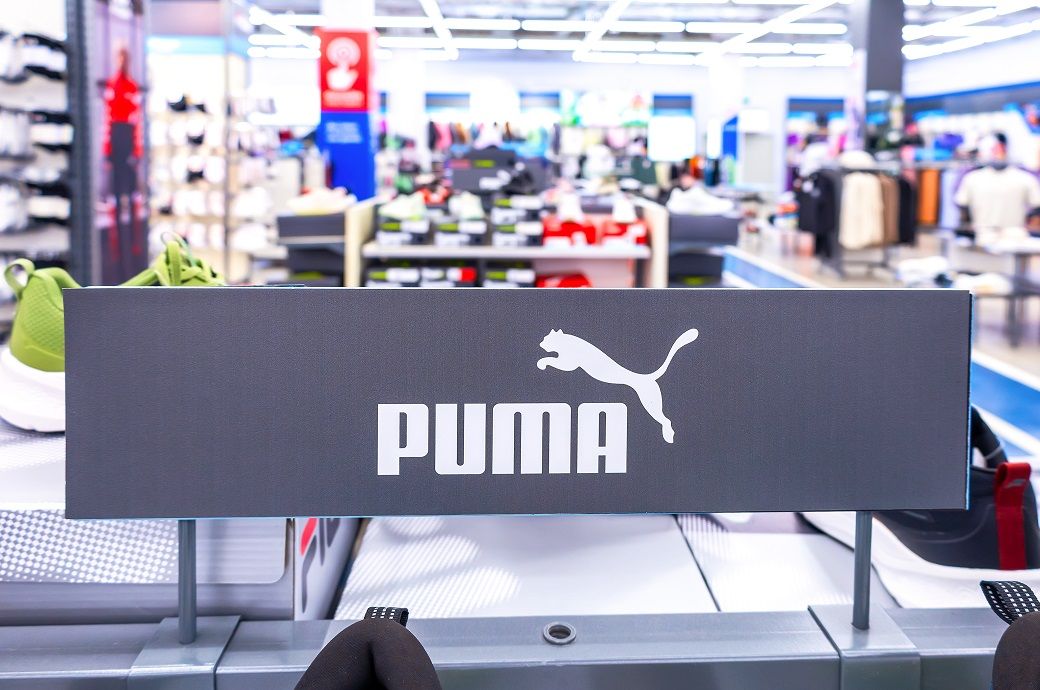
Wholesale revenue dropped 12.8 per cent on a currency-adjusted basis to €4.9 billion, while direct-to-consumer (DTC) sales increased 3.4 per cent, lifting the DTC share to 32.4 per cent from 28.9 per cent.
Regionally, sales fell 6.9 per cent in Europe, Middle East and Africa (EMEA), 7.4 per cent in Asia-Pacific and 10 per cent in the Americas, with North America driving much of the decline.
Puma has reported sales of €7.3 billion (~$8.61 billion) in FY25, with currency-adjusted revenue down 8.1 per cent amid strategic reset actions.
Wholesale declined while DTC share increased.
Margins contracted and EBIT turned negative, leading to a net loss.
Q4 saw sharper declines across regions and categories.
Puma expects further sales softness and negative EBIT in FY26.
By product segment, footwear sales decreased 7.1 per cent, apparel declined 9.7 per cent and accessories fell 8.5 per cent, although selective growth was observed in running, training and premium sport style lines, Puma said in a press release.
Profitability weakened significantly during the year. Gross margin contracted 260 basis points to 45.0 per cent, impacted by promotional activity, inventory reserves, unfavourable mix and currency effects. Adjusted EBIT turned negative at €165.6 million, while reported EBIT declined to -€357.2 million after €191.6 million in one-off costs related mainly to the cost efficiency programme and goodwill impairments.
Loss from continuing operations widened to -€643.6 million, translating to earnings per share of -€4.37 versus €1.88 in the prior year.
From a balance sheet perspective, inventories rose 2.3 per cent to €2.06 billion as inventory takebacks from wholesale partners supported distribution clean-up. Working capital increased 20.2 per cent, while trade receivables and payables declined sharply in line with reduced sales and purchasing activity. Puma ended the year with additional financing capacity, including €1,202.2 million in unutilised credit lines.
Fourth quarter (Q4) performance reflected the peak impact of the strategic reset. Currency-adjusted sales declined 20.7 per cent to €1,564.9 million, with reported revenue down 27.2 per cent due to currency headwinds. The decline was driven by deliberate reductions in wholesale exposure, inventory clearance actions and lower promotional intensity.
Wholesale sales fell 27.7 per cent in Q4, while DTC revenue decreased 8.0 per cent, although DTC share increased to 41.1 per cent from 35.5 per cent. Regionally, sales dropped 12.6 per cent in Asia-Pacific, 22.2 per cent in the Americas and 24.3 per cent in EMEA.
Across product divisions, footwear sales declined 25.4 per cent, apparel fell 13.7 per cent and accessories dropped 18.2 per cent, with selective resilience in training and performance running categories.
Profitability deteriorated sharply. Gross margin declined to 40.2 per cent from 47.7 per cent due to promotions, inventory provisions and currency effects. Adjusted EBIT fell to -€228.8 million, while reported EBIT reached -€307.7 million following one-off costs linked to restructuring and impairment charges. The quarter ended with a loss from continuing operations of -€335 million.
Arthur Hoeld, CEO of Puma, said: “2025 was a reset year for us. We want to establish Puma as a top 3 sports brand globally, return to above-industry growth and generate healthy profits in the medium term. It is crucial to make the Puma brand less commercial and ensure we once again excite our consumers with attractive products, compelling storytelling and distribution in the right channels. I am satisfied with the progress we have made so far. We cleaned up most of our distribution by reducing promotions in our own channels and cutting our exposure to those wholesale channels that damage our brand’s desirability. To better position our product icons and our performance offering and tell more engaging product stories, we created the right structures inside our company. We also addressed operational inefficiencies and further optimised our cost base.”
Looking ahead, Puma expects currency-adjusted sales in fiscal 2026 to decline in the low- to mid-single-digit percentage range, with EBIT projected between -€50 million and -€150 million. Capital expenditure of around €200 million is planned as the company continues investments in brand repositioning and digital capabilities, added the release.
Fibre2Fashion News Desk (SG)
Fashion
India’s real GDP estimated to grow 7.6% in FY26 under new base FY23
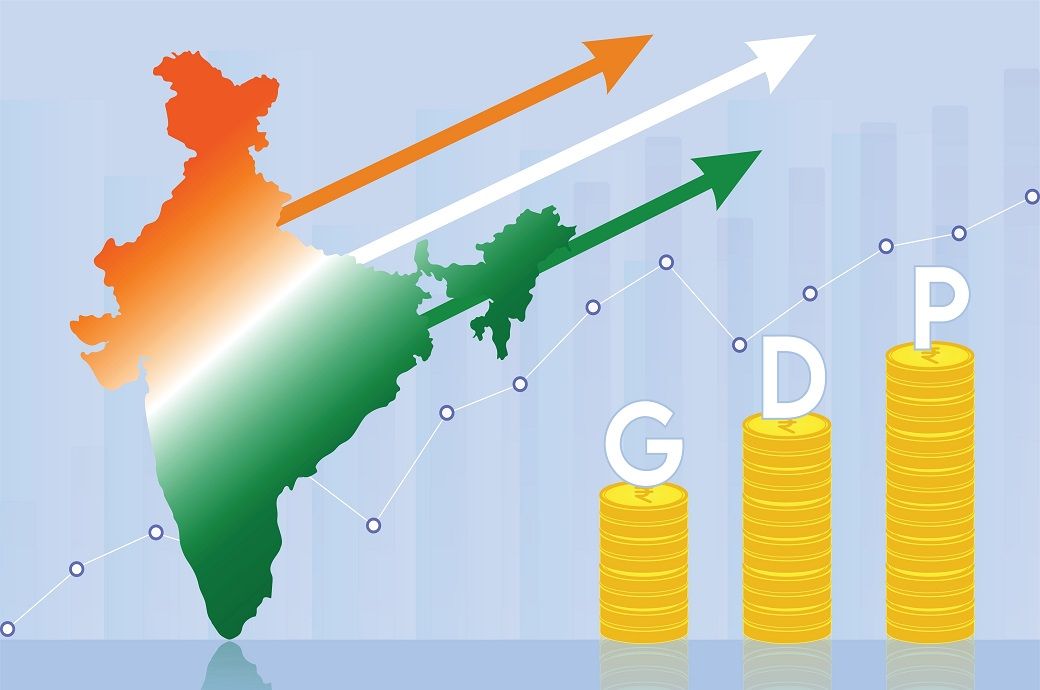
Nominal GDP, or GDP at current prices, is estimated to grow at 8.6 per cent to reach ₹345.47 trillion in FY26 against ₹318.07 trillion in 2024-25.
India’s real GDP is estimated to grow at 7.6 per cent to ₹322.58 trillion (~$3.54 billion) in FY26 compared to the first revised GDP estimate of ₹299.89 trillion for FY25 (7.1 per cent growth).
It released the new series of annual and quarterly national accounts estimates with FY23 base.
Real GVA is projected to grow at 7.7 per cent to reach ₹294.40 trillion in FY26 against ₹273.36 trillion in FY25.
Real gross value added (GVA) is projected to grow at 7.7 per cent to reach ₹294.40 trillion in FY26 against ₹273.36 trillion in FY25 (a 7.3-per cent growth rate).
Nominal GVA is estimated to grow at 8.7 per cent to hit ₹313.61 trillion during FY26, against ₹288.54 lakh crore in 2024-25.
Robust economic performance in FY26 is primarily on account of robust real growth observed in the second quarter (8.4 per cent) and third quarter (7.8 per cent).
The manufacturing sector has been the major driver of resilient performance of the economy the consecutive three fiscals after rebasing, a release from the ministry said.
Both private final consumption expenditure and grossed fixed capital formation exhibited more than 7-per cent growth rate in FY26.
Fibre2Fashion News Desk (DS)
-

 Politics1 week ago
Politics1 week agoPakistan carries out precision strikes on seven militant hideouts in Afghanistan
-

 Business1 week ago
Business1 week agoEye-popping rise in one year: Betting on just gold and silver for long-term wealth creation? Think again! – The Times of India
-

 Sports1 week ago
Sports1 week agoKansas’ Darryn Peterson misses most of 2nd half with cramping
-
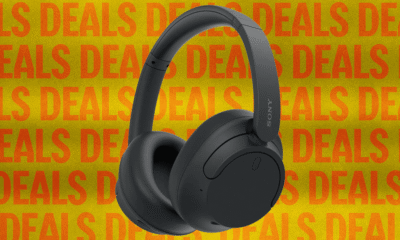
 Tech1 week ago
Tech1 week agoThese Cheap Noise-Cancelling Sony Headphones Are Even Cheaper Right Now
-
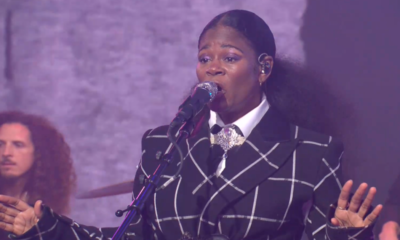
 Entertainment1 week ago
Entertainment1 week agoSaturday Sessions: Say She She performs "Under the Sun"
-

 Sports1 week ago
Sports1 week agoHow James Milner broke Premier League’s appearances record
-

 Entertainment1 week ago
Entertainment1 week agoViral monkey Punch makes IKEA toy global sensation: Here’s what it costs
-
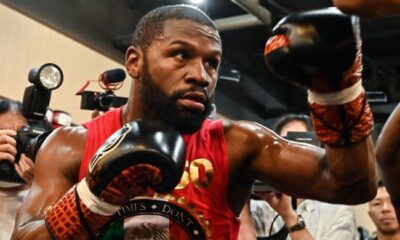
 Sports1 week ago
Sports1 week agoFloyd Mayweather to come out of retirement again


